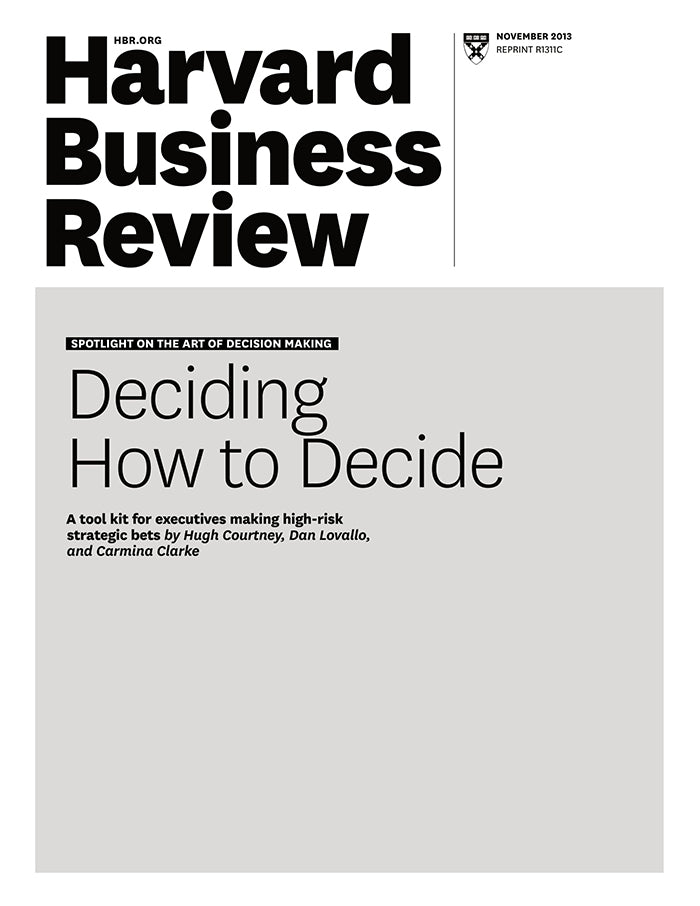Deciding How to Decide
受取状況を読み込めませんでした
Most businesses rely on traditional capital-budgeting tools when making strategic decisions such as investing in an innovative technology or entering a new market. These tools assume that decision makers have access to remarkably complete and reliable information--yet most strategic decisions must be made under conditions of great uncertainty. Why are these traditional tools used so often even though their limitations are widely acknowledged? The problem is not a lack of alternatives. Managers have at their disposal a wide variety of tools--including decision analysis, scenario planning, and information aggregation tools--that can help them make smart decisions under high degrees of uncertainty. But the sheer variety can be overwhelming. This article provides a model for matching the decision-making tool to the decision being made, on the basis of three factors: how well you understand the variables that will determine success, how well you can predict the range of possible outcomes, and how centralized the relevant information is. The authors bring their framework to life using decisions that executives at McDonald's might need to make--from the very clear-cut (choosing a site for a new store in the United States) to the highly uncertain (changing the business in response to the obesity epidemic).
【書誌情報】
ページ数:10ページ
サイズ:A4
商品番号:HBSP-R1311C
発行日:2013/11/1
登録日:2013/11/18


